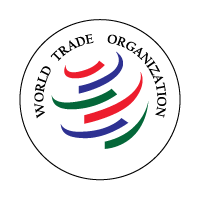 This week, Antigua and Barbados’ Finance Minister told the Caribbean press that its ambassador “is engaging officials and technicians at the office of the United States Trade Representative in Washington, DC, to try to once again bring their long-running Internet gambling dispute to an end.” This news comes after the announcement in late January that Antigua “was granted authorization by the World Trade Organization (WTO) to suspend certain concessions and obligations it has under international law to the United States in respect of intellectual property rights.”
This week, Antigua and Barbados’ Finance Minister told the Caribbean press that its ambassador “is engaging officials and technicians at the office of the United States Trade Representative in Washington, DC, to try to once again bring their long-running Internet gambling dispute to an end.” This news comes after the announcement in late January that Antigua “was granted authorization by the World Trade Organization (WTO) to suspend certain concessions and obligations it has under international law to the United States in respect of intellectual property rights.”
As noted in an earlier Infojustice blog, the WTO Dispute Settlement Body (DSB) previously found that the United States discriminates against the Antiguan online gambling industry, in violation of the GATS agreement. Therefore, the DSB has decided that Antigua may “suspend obligations under the TRIPS Agreement” on goods up to a $21 million as a form of cross-retaliation under Article 22.3 of the Dispute Settlement Understanding.
The United States objected to the idea that Angitua would suspend TRIPS obligations, but it seems that the threat of cross-retaliation has brought it to the table. Antigua’s attorney Mark Mendell noted after the cross-retaliation was authorized that “we’ve heard a lot more from them (the US negotiators) over the past two weeks than over the past 10 years.”
Caribbean Nations Support Antigua and Barbados and the WTO
At the February 27 meeting of the WTO Dispute Settlement Body, a representative from Dominica had spoke on behalf of Antigua and Barbados, highlighting concern over the U.S.’s failure to suggest a negotiated outcome to the dispute, and its use of terms such as “theft of intellectual property” and “government-authorized piracy” to describe WTO-authorized retaliation for the U.S.’s GATS violation. According to the WTO Dispute Settlement Body’s account of the meeting:
“In Antigua and Barbuda’s view, the use of such intemperate and dismissive language by the US was a fundamental challenge to the WTO and a reputational assault both on the DSB that had given the approval for intellectual property (IP) suspensions and on Antigua and Barbuda that had sought its right to exercise it. Antigua and Barbuda called on members to defend the WTO’s fundamental principles and to ensure that its rulings are applied equally by all countries despite their size.”
This statement was supported by Trinidad and Tobago (speaking on behalf of CARICOM), Haiti, Jamaica and Barbados.




